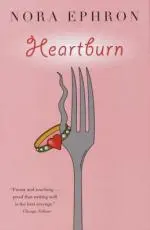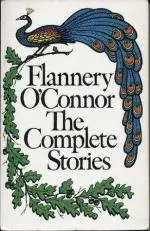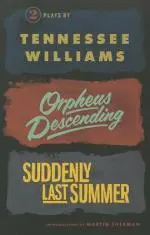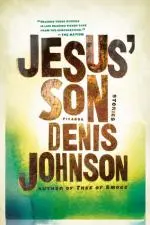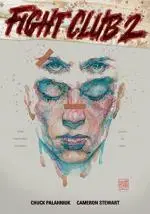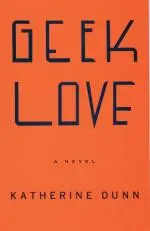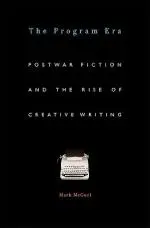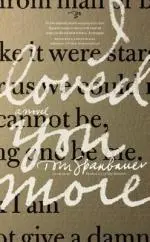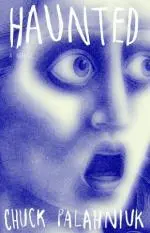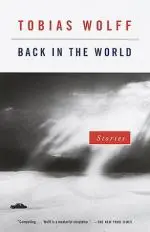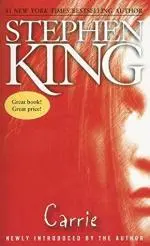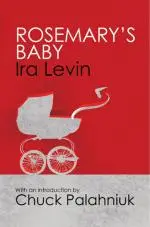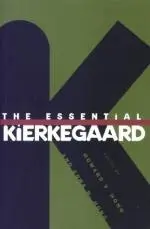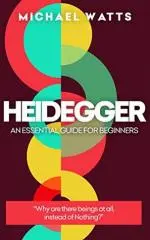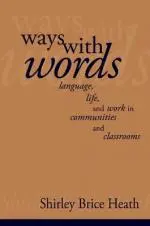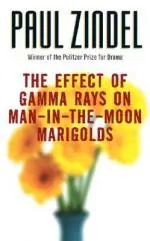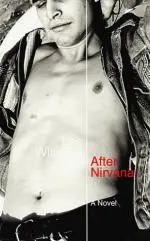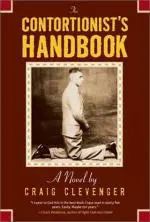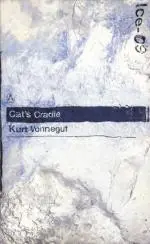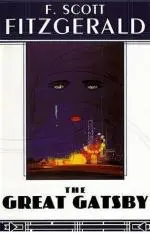If you're not excited about Chuck Palahniuk's upcoming how-to book, Consider This, you should be.
Yes, I know there are lots of how-to-write books out there. This one is going to be different.
For one, his how-to travel guide to Portland is some of his best work. Even if you never go to Portland (and I'd argue you'll never go to the Portland in Fugitives and Refugees because it doesn't exist anymore), it's a great read.
Two, Chuck is a really great teacher. When I was lucky enough to be in a workshop with him for a few months, I saw first hand that this guy not only knows how to write, but he can teach others what he knows, provided they're willing to listen.
Three, he is like a fiction mechanic. He has this amazing ability to pop the hood on a story, take a look, and figure out how it works (or doesn't). You'll learn a lot about fiction, books, movies, whatever, from Consider This.
To get the most out of Consider This, I've got a reading list for you. Based on what I learned, fiction referenced by Chuck, and a few other options, hitting up these books will prep you for Chuck's takes. Or, if you want to read them after, will help you with some of the concepts likely to come up in the book.
![]() 1. "Heartburn" by Nora Ephron
1. "Heartburn" by Nora Ephron
A master class on the use of objects in minimalist fiction. When you see the cover, it doesn’t look like something that Chuck would love. But trust me on this one, there’s a lot to learn here about using objects to propel a story.
Get Heartburn at Bookshop or Amazon
![]() 2. "The Complete Stories" by Flannery O’Connor
2. "The Complete Stories" by Flannery O’Connor
“What would Flannery O’Connor do?” That is the phrase Chuck wrote on my story, and it’s one he asked a lot in workshop. Flannery O’Connor was a great writer, and she was a great student. Take a page from her book. No, wait, take all the pages and go from there. How does she structure a story? How does she end a story? What's interesting about her individual stories?
Get The Complete Stories at Bookshop or Amazon
![]() 3. "Suddenly Last Summer" by Tennessee Williams
3. "Suddenly Last Summer" by Tennessee Williams
Authority will almost certainly be a big topic. There are two basic ways to establish your narrator's authority: head and heart. One proven method to gain heart authority is to have a character admit something or be brutally honest in a way that's courageous. One option is finding a way for a character to talk about themselves in the third person, which allows them to be harsh and honest. Suddenly Last Summer provides a great example.
Get Suddenly Last Summer at Bookshop or Amazon
![]() 4. "Jesus' Son" by Denis Johnson
4. "Jesus' Son" by Denis Johnson
A surprise to no one, but there’s so much to analyze that most students never even consider. These stories have a depth that warrants reading them over and over. For example, when does Johnson use quotation marks and why? Do the quotation marks make the reader feel more or less a part of the story? Do they bring the reader in closer or push them away? You can get so micro with the stories in this collection.
Get Jesus' Son at Bookshop or Amazon
![]() 5. "Fight Club 2" by Chuck Palahniuk
5. "Fight Club 2" by Chuck Palahniuk
With the release of Fight Clubs 2 and 3 in comics form, I would think it’s likely we'll hear some lessons learned from working in comics. Fight Club 2 has an ending that has a lot to say about fiction and stories as well. It's fascinating.
Get Fight Club 2 at Bookshop or Amazon
![]() 6. "Geek Love" by Katherine Dunn
6. "Geek Love" by Katherine Dunn
Liminality and liminal spaces is another likely topic. Geek Love's main character manages to manipulate events and orchestrate most of what goes on because she exists in this liminal space due to her growing up in a family that travels the carnival circuit. It's from this space, this "outside," that she is able to do what she does.
Get Geek Love at Bookshop or Amazon
![]() 7. "The Program Era" by Mark McGurl
7. "The Program Era" by Mark McGurl
An admittedly dry read, but there's a great deal of knowledge here. Especially interesting is the discussion of the value (or lack) of MFA creative writing programs. Likely to be referenced more than a few times.
Get The Program Era at Bookshop or Amazon
![]() 8. "I Loved You More" by Tom Spanbauer
8. "I Loved You More" by Tom Spanbauer
Devotees of Chuck know he studied with Tom. If you read I Loved You More, you’ll not only get a great story, you'll get a lot of great insight into minimalist techniques like big and little voice. They’re naked on the page, and to understand Chuck, you have to go back to Tom.
Get I Loved You More at Bookshop or Amazon
![]() 9. "Haunted" by Chuck Palahniuk
9. "Haunted" by Chuck Palahniuk
Specifically, “Guts.” This story is, in my opinion, the purest distillation of Chuck’s style and sensibility. It’s got the gross-out factor that pumps up the entire heartbreaking conclusion. It was developed the way he likes to develop stories, by talking them over and snowballing other peoples' similar stories into one cohesive unit. If it wasn't about jerking off at the bottom of a pool, this would be in every short story collection used to teach aspiring writers.
Get Haunted at Bookshop or Amazon
![]() 10. "Back In The World" by Tobias Wolff
10. "Back In The World" by Tobias Wolff
Specifically "The Rich Brother." This story is all about repetition and how repetition pairs with escalation. Repetition without escalation is exhausting and worthless, but repetition that escalates the tension is a beautiful thing.
Get Back in the World at Bookshop or Amazon
![]() 11. "Carrie" by Stephen King
11. "Carrie" by Stephen King
Non-fiction devices, techniques, and forms can be very useful in fiction. In Carrie, they serve to push out exposition in a way that feels natural. As a bonus, newswriting is not expected to sound as good as fiction, so it gives the reader another texture while providing needed information.
Get Carrie at Bookshop or Amazon
![]() 12. "Rosemary’s Baby" by Ira Levin
12. "Rosemary’s Baby" by Ira Levin
Clocks can be a great thing in a story. They make sure things keep moving. Rosemary's Baby was one Chuck mentioned often for a variety of reasons. In it, the baby serves as a clock. We know it's coming, and it adds an inevitability, a momentum to the story.
Get Rosemary's Baby at Bookshop or Amazon
![]() 13. "The Essential Kierkegaard" by Howard V. Hong
13. "The Essential Kierkegaard" by Howard V. Hong
Sometimes discussions got pretty deep. Fiction's about life. The better you understand life, the better you'll understand fiction.
Get The Essential Kierkegaard at Bookshop or Amazon
![]() 14. "Heidegger: An Essential Guide For Complete Beginners" by Michael Watts
14. "Heidegger: An Essential Guide For Complete Beginners" by Michael Watts
Like I said, things got deep. You can at least cheat this one a little bit via an intro text.
Get Heidegger: An Essential Guide... at Bookshop or Amazon
![]() 15. "Ways with Words: Language, Life and Work in Communities and Classrooms" by Shirley Brice Heath
15. "Ways with Words: Language, Life and Work in Communities and Classrooms" by Shirley Brice Heath
Heath was a pioneer in the field of studying what makes popular fiction so, well, popular. And lasting and effective. What audiences are looking for and how social models are depicted in fiction.
Get Way with Words at Bookshop or Amazon
![]() 16. "The Effect of Gamma Rays on Man-in-the-Moon Marigolds" by Paul Zindel
16. "The Effect of Gamma Rays on Man-in-the-Moon Marigolds" by Paul Zindel
This is a big voice / little voice situation. Stepping up and stepping out as well. It also demonstrates the art project as a way to track time and progress in a narrative. It's a quick read, and it demonstrates a lot of techniques without a bunch of extra nonsense.
Get The Effect of Gamma Rays... at Bookshop or Amazon
![]() 17. "After Nirvana" by Lee Williams
17. "After Nirvana" by Lee Williams
This book is so unflinching without being exploitative. It's a beautiful, difficult balance, and this book is a master class.
Get After Nirvana at Amazon
![]() 18. "The Contortionist’s Handbook" by Craig Clevenger
18. "The Contortionist’s Handbook" by Craig Clevenger
OTB. This is a set of initials you'll become familiar with. Going OTB means going "On The Body," which means moving the narration to the narrator's body, how things feel on the body, rather than reaching for dialog or action when you want to progress a story. How do people understand something they’ve never experienced? Clevenger does it like this:
You know what it’s like when you wake up Monday morning, you’re filled with this dread, all is pointless...then you realize it’s Sunday? Multiply that by 100. That’s what a Vicodin feels like.
Get The Contortionist's Handbook at Amazon
![]() 19. "Cat’s Cradle" by Kurt Vonnegut
19. "Cat’s Cradle" by Kurt Vonnegut
"If you can be Vonnegut, be Vonnegut." Pretty solid advice.
Get Cat's Cradle at Bookshop or Amazon
![]() 20. "The Great Gatsby" by F. Scott Fitzgerald
20. "The Great Gatsby" by F. Scott Fitzgerald
It’s just got so many of the essentials. It seems to be the first book that really struck Chuck, the one that laid bare the essentials of fiction and opened up this world of possibilities. If there was one book that I was very sure you'd see referenced, this is it.
Get The Great Gatsby at Bookshop or Amazon
Any writing course must have a reading list. Which books have you read to become a better writer?

About the author
Peter Derk lives, writes, and works in Colorado. Buy him a drink and he'll talk books all day. Buy him two and he'll be happy to tell you about the horrors of being responsible for a public restroom.
